
Covid-19 business and policy research
Covid-19 has accelerated innovation in Surrey

A survey amongst Surrey Research Park tenants reveals that over 50% of respondents are pivoting their business or diversifying their product range or service as a result of Covid-19. Research on the impact of Coronavirus reveals that 57% of respondents are diversifying their product range or service as a result of the pandemic, whilst over a third (35%) have identified a new application for their technology and 39% have accelerated innovation within their organisation.
Service design and information provision requirements based on proxemics
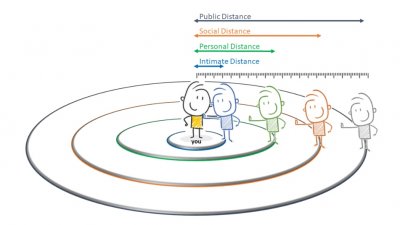
Dr Brigitte Stangl, Dr Margit Kastner (WU Wien) and Owen Grainger-Jones are examining the change of proxemics introduced by Edward Hall in the early 60s. Potential changes of the four personal interaction zones intimate-, personal-, social- and public distance will be revealed in the context of tourism. A picture-based survey-approach is used to compare pre and post Covid-19 perceptions and differences between segments visiting museums will be revealed. Results of the study will allow to give suggestions concerning consequences for the design of services, such as museums, and information provision requirements post Covid-19.
Modelling risk of Covid-19 infection in enclosed settings as part of the Royal Society’s Rapid Assistance in Modelling the Pandemic (RAMP) initiative
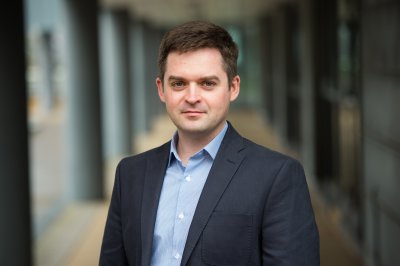
Dr Oleksiy Klymenko (pictured) and Dr Michael Short, in collaboration with PGRs, Ishanki De Mel and Panos Demis, joined the Royal Society’s Rapid Action in Modelling the Pandemic (RAMP) initiative in April. Together with researchers from the Universities of Bath Leeds, they have been developing models that determine risk of Covid-19 infection within enclosed spaces such as offices and public transport. Their models use experimental data from human behaviour, viral survival on surfaces, and transmission via different pathways to assess and guide policies for different environments, including cleaning and how many people should be present in a space and for how long to minimise risk of infection.
Using scientific modelling to understand Covid-19
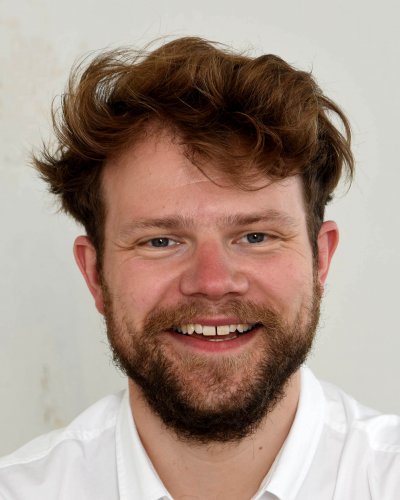
Dr Pete Barbrook-Johnson (pictured) is part of a team led by Durham University providing Covid-19 analysis and modelling to NHS trusts in the north-east of England. This work is helping decision-makers understand the uncertainty around forecasts models are providing them and allowing them to combine the outputs of many models rather than rely on a few. Pete is also working with colleagues in the Centre for the Evaluation of Complexity Across the Nexus (CECAN) to explore the impacts of Covid-19 on rural areas.
The impact of the UK’s Covid-19 lockdown on dog owners' wellbeing
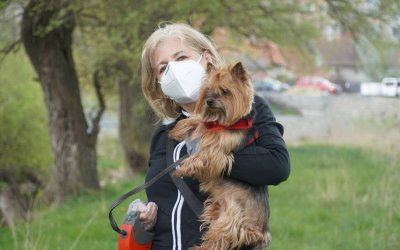
Postgraduate researcher Lori Hoy in the School of Hospitality & Tourism Management is investigating the lockdown’s impact on dog owners’ feelings, thoughts, behaviours, and wellbeing. The project is receiving input from various stakeholders including MP Luke Pollard, Shadow Secretary for Environment, Food & Rural Affairs. This project aims to generate information for government, businesses, and charities in future crises. Lori is supervised by Dr Brigitte Stangl and Prof Nigel Morgan.
Consumer purchasing intention in restaurants and hotels post-Covid-19 lockdown
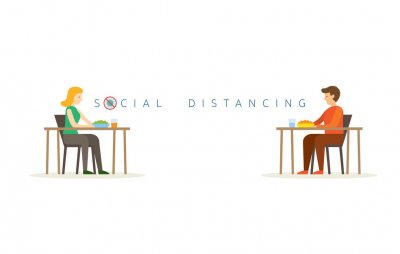
Dr Yoo Ri Kim and Dr Anyu Liu are working on an experimental study regarding understanding consumers’ purchasing intention in restaurants and hotels after the Covid-19 lockdown measures are lifted. This study aims to provide both theoretical and practical implications for the hospitality industry after the lockdown measures have been lifted by informing consumer behavioural intention on social distancing measures and promotion offers.
Examining the wellbeing of gig workers during Covid-19
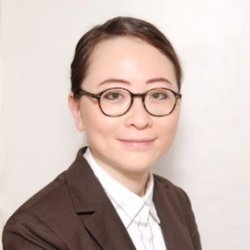
Dr Yanning Li (pictured) and Dr Tracy Xu are investigating the wellbeing of gig economy workers during lockdown. It aims to uncover how the Covid-19 pandemic influences the wellbeing of workers in the gig economy in the UK. This project will be beneficial for local authorities and public health-care managers to address the needs of low-income and relatively insecure group.
Innovative pricing: Pay-as-you-wish as a means to attract customers to museums post-Covid-19

All around the globe tourism organisations are looking for ways to build trust to get customers back to travel, to visit sights, and to generally engage in tourism related activities. Dr Brigitte Stangl and Dr Margit Kastner (WU Vienna) are examining the implementation of innovative pricing strategies namely Pay-As-You-Wish (PAYW) for example for museums. PAYW brings benefits for suppliers and consumers. Organisations attract consumers, who can pay the price they can afford (considering the impact the lockdown had on the income of many people). Generated revenue allows organisations to cover costs and to continue operating the business in the usual quality, diversity, and excellence.
Pandemics, tourism and global change: a rapid assessment of Covid-19

Professor Daniel Scott (pictured) co-authored the assessment of Covid-19 on the tourism industry that is currently the most read journal article in the world in this topic. It reviews how the current ban on travelling is affecting the tourism industry and what the consequences for the sector may be.
Impact of Covid-19 mobility restriction in China on people’s travel intention – Evidence from Weibo data

Dr Anyu Liu (pictured) and Dr Yoo Ri Kim with collaborators in China are working on a project to investigate the impact of the Covid-19 mobility restriction on people’s travel intention. The travel intention is measured by the daily sentiment score of 31 provinces/municipalities in China and the casual relationship is examined by the spatial DID approach. The findings of the ongoing study will be updated in due course.
Impact of Covid-19 on Asia Pacific visitor forecasts 2020-2024

Professor Gang Li (pictured) and Dr Anyu Liu, in collaboration with Professor Haiyan Song’s team at The Hong Kong Polytechnic University, produced Asia Pacific Visitor Forecasts 2020-2024 for the Pacific Asia Travel Association (PATA). The report has paid particular attention to the impact of Covid-19 on the visitor demand and the market recovery in 39 destinations of the region. Both Professor Li and Dr Liu were invited as panellists to PATA’s webinar on this topic on 14 May.
Reviewing practices in world cities for dealing with Covid-19
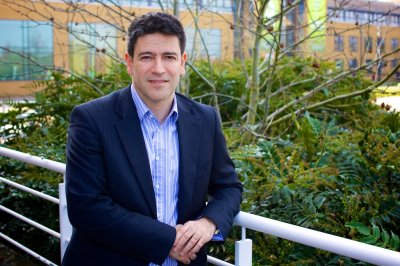
Professor Lampros Stergioulas (pictured) and colleagues from Surrey Business School are reviewing practices in cities around the world in dealing with the Covid-19 crisis. Reviewed issues include social isolation and other wellbeing and psychological effects, supply chains and public information actions. This research aims to produce policy-making recommendations to support evidence-based policy making and informed decision support in dealing with the Covid-19 crisis.
Doctoral researcher supports national Covid-19 reporting

Postgraduate researcher Steve Falconer from the School of Mathematics and Physics is helping the Royal College of GPs’ Research and Surveillance Centre with their weekly communications and respiratory disease reporting during the Covid-19 pandemic. Steve has had to temporarily move to part-time research for his PhD so that he can spend 2 days a week supporting this work. Steve is supervised by Dr Santitissadeekorn Naratip and Dr David Lloyd.
Retail expert investigates measures providers undertake to signal safety to consumers
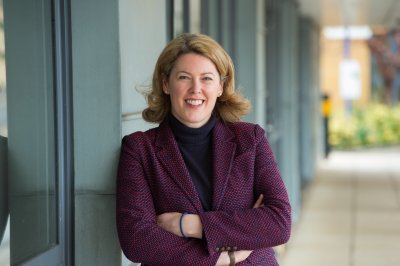
Professor Sabine Benoit (pictured) studies which measures retailers and service providers undertake to signal safety to their consumers. For this she and her co-author have scanned over 1000 managerial articles and identified 50 distinct measures. They relate to the access to the service environment (e.g. obligation to wear masks or one-in-one-out policies), to the physical environment and tangibles (e.g. one-way systems or virus repellent fabrics) and the staff or other customers (e.g. protective shields or removal of non-essential staff). Signalling theory is used to evaluate the effectiveness of these instruments.
Examining the resilience of hospitality companies during the Covid-19 pandemic

Dr Tracy Xu (pictured) is working with Mark Ashton and Dr Yanning Li to study the resilience capacity and real-time adaptive strategies hospitality organisations need to have in order to sustain in the Covid-19 pandemic. This project aims to provide insights into how business strategies for hospitality organizations may be better formulated to build sustainable competitive advantage.
Virtual experiences of travel during lockdown
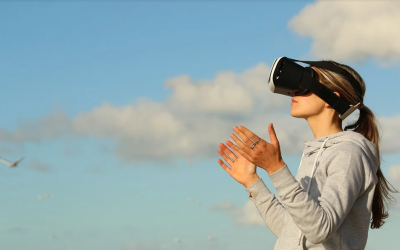
Professor Caroline Scarles, Drs. Tracy Xu and Daisy Liu and Ms Ayeisha Green are collaborating to investigate how experiences of virtual travel effect wellbeing during lockdown and how these experiences may affect travel planning and decision making going forward as the tourism industry moves into a post-COVID-19 era. This is an ongoing survey and the results will be shared in due course.
Changes in air passenger demand as a result of the Covid-19 crisis
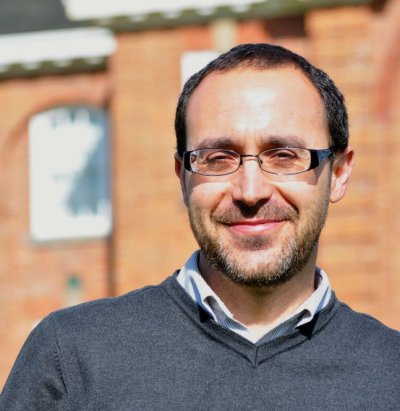
Using data on 5,000 million air passenger searches on Skyscanner, we found that desire to fly in 2020 drop by 50% in Asia and 30% in Europe and the Americas, and intention to fly dropped by a further 20%, while most source markets remain optimistic about air travel during the last quarter of 2020. Professor Xavier Font (pictured) and Dr Inma Gallego developed a methodology to detect the reactivation of tourist markets to help mitigate the effects of the COVID-19 crisis, with a traffic light dashboard that shows how destination managers can use air travel Big Data.
Surrey Living Lab funded Doctoral Researcher investigates the impact of Covid-19 on travel behaviours and perceptions towards remote working
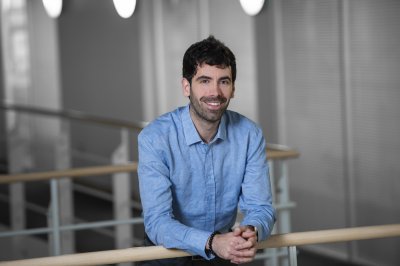
Nicola Andreij Rieg (pictured) is working with Dr Chris Jones and Dr Nikolas Thomopoulos to examine the impact of Covid-19 on habits, attitudes, and norms of University staff regarding travel to work and remote working. The study aims to uncover remote working experiences during lockdown and potential changes in commuting in the short-term and long-term future, and in this way inform new working guidelines towards providing better support for remote working and travel to work.
Creating virtual encounters with art in times of crisis
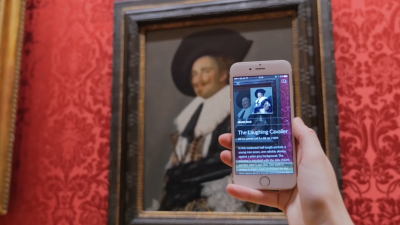
Professors Caroline Scarles, Gang Li, Drs Jason Chen and Husna Zainal Abidin are evaluating the impacts of virtual engagement with and experience of art during times of crisis. The objectives of this research project are as follows: firstly, to critique the shifts in visitor behaviour patterns throughout this time of crisis as they move from predominantly physical, on-site encounters with art, to engaging with art and curated tours through platforms such as Smartify; secondly, to evaluate the future opportunities for arts and heritage organisations in reframing existing business models to adopt greater virtual, greener and technology-led solutions for engaging with art galleries and associated exhibitions. This project is funded by the SME Innovation Voucher Scheme, in collaboration with Smartify.